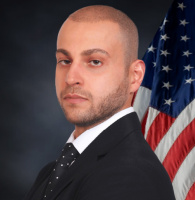Shorewood Felony Lawyer, Illinois
Sponsored Law Firm
-
 x
x

Click For More Info:
-
LaPapa Law Group
10704 S Western Ave Chicago, IL 60643» view mapAccident & Injury Law, Criminal Defense Changing Lives One Case At A Time
At LaPapa Law Group, we understand that life doesn’t always go as planned. We have the knowledge and experience needed to competently represent you in court.
800-694-2681
Kristine M. Honiotes
Kristine Honiotes is a trial lawyer with over 12 years of experience. As a former Will County Assistant Public Defender, she defended all types of fel... (more)
Philip R. Nathe
After starting his career in the criminal courts of DuPage County as a clerk more than 30 years ago, Philip Nathe went on to become an accomplished at... (more)
Brett A. Appelman
In 2007, Brett Appelman established Appelman Law LLC with the mission of safeguarding and advocating for the rights of individuals accused of crimes. ... (more)
Khaled Issa
Khaled Issa is a well-versed trial attorney with more than 10 years of legal experience. Knowledgeable in many areas of law, Attorney Issa concentrate... (more)
Patricia Magaña
Attorney Magaña has extensive experience in criminal defense, including traffic, misdemeanor, and felony offenses. Additionally, she represents indiv... (more)
Steven C. Haney
FREE CONSULTATION
CONTACTFREE CONSULTATION
CONTACT Gregory R. LaPapa Chicago, IL
Gregory R. LaPapa Chicago, IL Practice AreasExpertise
Practice AreasExpertise






